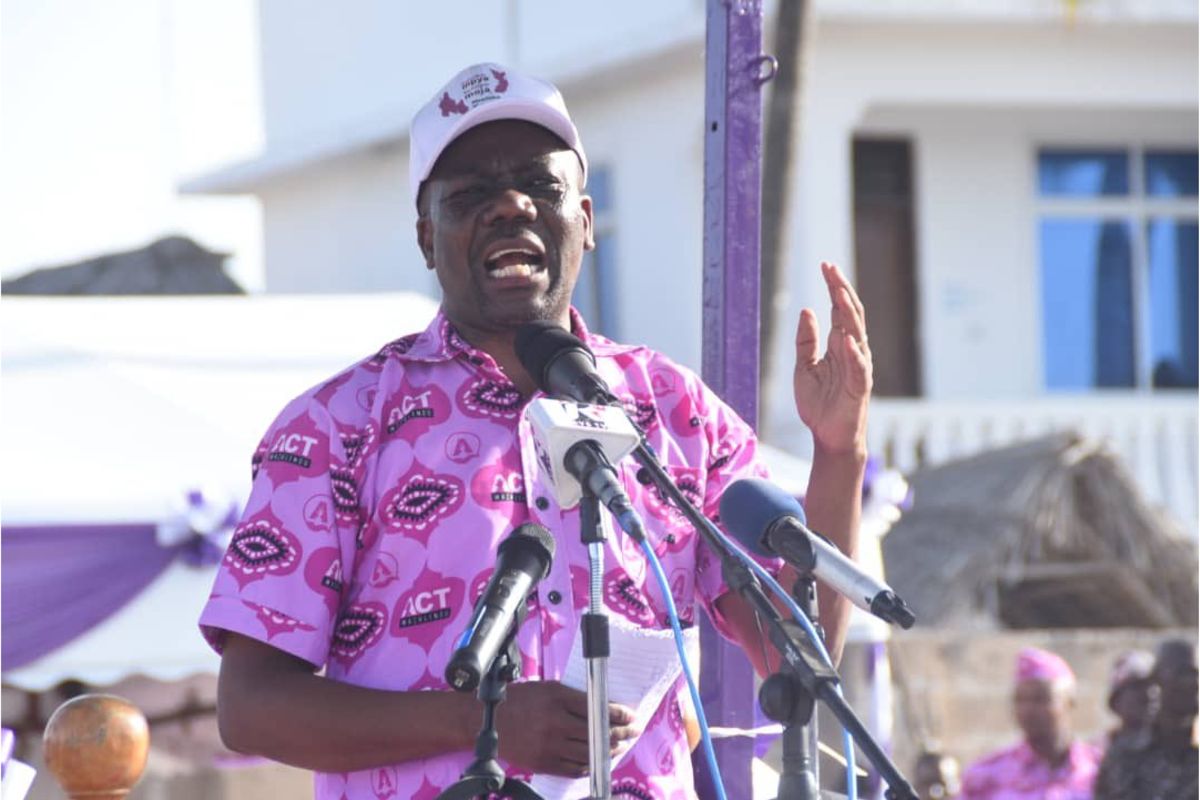Unguja. Polish national Wojciech Zabinski is wanted man for fraud in his native country.
However, in Zanzibar where he created an illusion of a dream getaway, police say they are yet to receive any such requests.
Despite having disappeared, leaving his victims in disarray, his fellow Poles claim he remains a free man often seen roaming the streets of Stone Town.
Speaking to The Citizen, Zanzibar Police Commissioner Hamad Khamis Hamad said that Tanzania and Zanzibar for that matter is part of the international police network and they always cooperate.
“If such a request had come to us regarding the said individual we would have had no choice but to comply because there are times when we also need such assistance,” he said.
However, as police denied knowledge of Zabinski’s exploits on and off the Island, the Zanzibar Investment Promotion Authority (Zipa) has confirmed awareness of his troubles.
Zipa Executive Director Saleh Saad mentioned that the matter is now under investigation by the anti-corruption agency ZAECA.
“We cannot comment on his whereabouts as the investigation could be prejudiced by any statements,” said Mr Saad.
He acknowledged that several actions had been taken regarding Żabiński’s investments. “He had various projects, including the Pili Pili Hotels under the Zanzibar Tourism Commission (ZCT) and two others under ZIPA, with one still under construction,” Mr Saad explained

According to Mr Saad, the projects which housed the hotels have since been taken by the landlords and the second project – Natural Park – was cancelled.
“The second project has been cancelled because of procedural issues and we are in talks with investors to take over. It is taking some time because there are certain conditions that must be fulfilled to avoid legal loopholes that could taint the country’s image,” said the ZIPA chief.
He is confident that those who invested in the ill-fated projects in the long run will not lose their money

But even as Zipa supremo commits that the hotels were retaken by the former landlords and a check at Hotels Association of Zanzibar (HAZ) has also confirmed that Pili Pili is not a member, there have been more cases concerning bookings which have at the hotel.
Most of the bookings have been cancelled and no refunds made with Booking.com being forced to refund some of the customers.
The Citizen tried to reach out on numerous occasions for comment but the available phone went unanswered, neither were the messages replied.
The rise and fall of Zabinski
A few years ago, a certain little-known Polish national Wojciech Żabiński 48, arrived in Zanzibar’s tourism scene, he became an instant hit within the investment circles of the Isles.
He painted a picture of a luxurious getaway on the exotic island of Zanzibar that not many could imagine.
He established a hotel chain named Pili Pili, which quickly gained popularity among Polish tourists seeking sun-soaked retreats in the Spice Islands.
The chain wasn’t just about a place to stay; it offered a comprehensive vacation experience including flights, on-site attractions and investment opportunities in seaside villas.
In early 2022, Żabiński, also known as Wojtek to his clients, made a dramatic announcement that sent shock waves through his customer base.

He declared that all existing bookings would be cancelled, the hotels would close and Pili Pili would potentially reopen in June if he could secure a new investor.
For those who had invested in the dream of “vacation in paradise,” this was the beginning of a nightmare.
Clients who had paid substantial amounts for their holidays now found themselves stranded, with no refunds and no clear path forward.
The District Prosecutor’s Office in Gdańsk quickly initiated an investigation, which was soon escalated to the Regional Prosecutor’s Office.
By then, 26 complaints had been filed by deceived clients, however, several victims have since come forward with the number reaching over 250.
His exploits has since led to a production of a documentary ‘The King of Zanzibar’ that was released in July 2024 with many of his victims confessing to have lost thousands of dollars.
Those who had booked vacations at Pili Pili suffered losses ranging from a few thousand to several tens of thousands of zlotys.
For those who had invested in real estate through Żabiński’s ventures, the stakes were even higher, with losses reaching nearly PLN 2 million.
Despite numerous pleas and attempts to recover their funds, clients found themselves out of luck. The Gdańsk District Prosecutor’s Office took the lead in the investigation, but as the situation unfolded, it became apparent that Wojciech Żabiński had vanished.
In May 2022, Enter Air, the airline responsible for flights to Zanzibar, severed its contract with Pili Pili. They announced that flights scheduled for June would not occur due to unpaid dues by Żabiński.
This left tourists who had booked flights with no option but to find alternative means to reach the island—if they could even afford another ticket. Wojciech Żabiński, the man behind the so-called paradise, continued to withhold any refunds.
Wojciech Żabiński’s legal troubles were not new. In 2019, he had been sentenced to two years and two months in prison for fraud. He was expected to begin his sentence on May 23, 2022, but failed to report to prison.
The Supreme Court had scheduled a cassation hearing for June 8 at Żabiński’s request, but his absence and the unfolding scandal led the Gdańsk District Prosecutor’s Office to prepare an arrest warrant.
As Pili Pili awaited guests—though it remained a dubious promise—Wojciech Żabiński faced an inevitable reckoning with the law. The beautiful illusion he created was now overshadowed by the reality of his deceit and the quest for justice for those he defrauded continues.















